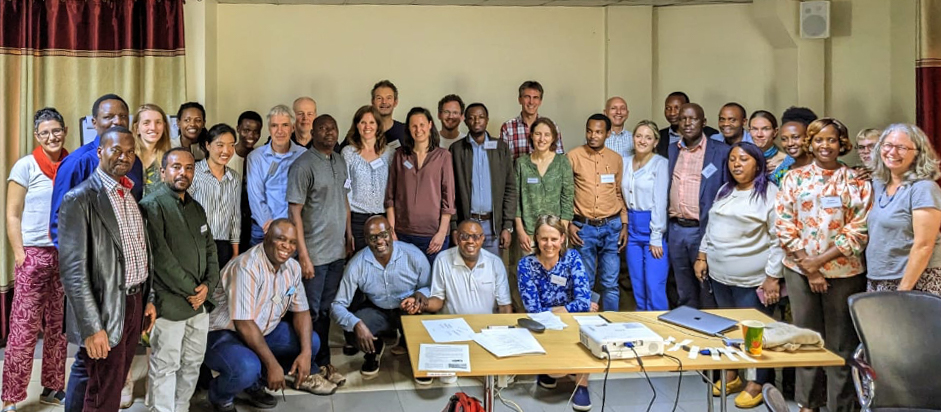KickOff in Kigali

Impressions from the KickOff in Kigali
Ecosystem restoration is now centre-stage in terms of providing potential options for restoring biodiversity as well as mitigating or adapting to climate change. It is also a global challenge given multiple demands on limited land, particularly in Rwanda, a country that is currently facing serious climatic pressures in a face of economically limited capacity of local communities to build resilience. The German Research Foundation is funding a new research project that is investigating the social and ecological outcomes of ecosystem restoration in Northwestern Rwanda, in in collaboration with many Rwandan stakeholders, including scientists from academic institutions, practitioners from governmental and private organizations, the civil society and representatives from local communities.
During their stay in Rwanda, researchers also had the opportunity to go to the field and further explore the study area. This now proves useful for the research design.
To get the research project off the ground, the consortium organised and led two important kick-off workshops in Kigali-Rwanda at the end of January (30th and 31st January 2024) to explore key concepts in social-ecological restoration to review the past, present and future of restoration science and practice with emphasis, as well as focussing on how the future could be shaped so that ecosystem restoration in western Rwanda could increasingly benefit both human well-being and ecological integrity and biodiversity in the long run. The first workshop focussed on scientific aspects of restoration in Rwanda (and participants were local scientists from Rwanda as well as the German team involving Leuphana University Lüneburg, Humboldt-University Berlin and University of Göttingen) also enabled initial networking to start within the broader collaboration in the context of the project. During the science-focussed kick-off workshop, the research team as well as the research were introduced to the participants at the workshop, and aside from an overview of the Restore Rwanda project, different methods typically applied in social ecological systems science were introduced and discussed in breakout groups and their scope applied to the Rwandan situation.
The second day was under the auspices of restoration practice, and many local and national practitioners, including local and national government officials from Rwanda Environment Management Authority (REMA), Rwanda Forestry Authority (RFA), Rwanda Water Board (RWB) and Rutsiro, Rubavu, Ngororero and Nyabihu districts, World Resource Institute (WRI). Albertine Rift Conservation Society (ARCOS), Deutsche Gesellschaft für Internationale Zusammenarbeit (GIZ), Rwanda Space Agency (RSA), World Agroforestry (ICRAF), Rwanda Institute for Conservation Agriculture (RICA) and the Internation Union for Conservation of Nature (IUCN). Here the group used the 3 Horizons method to analyse in smaller groups Horizon 1 (the current situation regarding restoration in Rwanda), Horizon 3 (where do we want to get to in the future) and then came up with key transformational tasks and paths needed to move from Horizon 1 to 3. The exercise proved very successful, enabling a deep exchange between local and international participants as well as the compilation of a list of key transformation steps. Publications are being prepared based on the two workshops, with coauthors from Rwanda partners as well as the German-based consortium (that includes scientists from Rwanda and Burundi).











